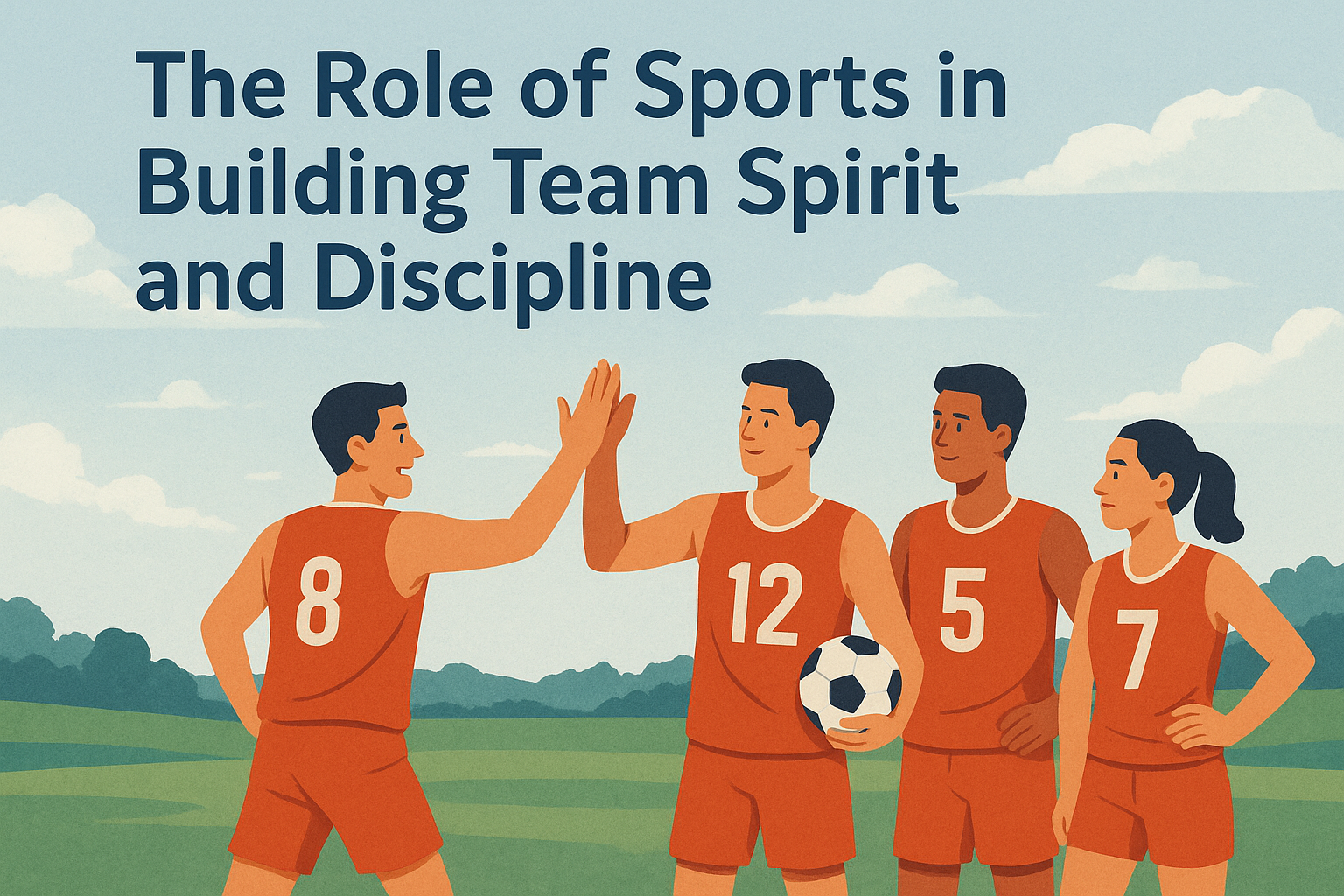Blog Details Home / Blog Details

The Role of Sports in Building Team Spirit and Discipline
In the modern education system, academic excellence often takes center stage. However, sports and physical activities play an equally vital role in shaping a student’s overall character and future success. Beyond physical fitness, sports act as powerful tools in building team spirit and discipline — qualities that benefit students far beyond the playground or the school gymnasium.
Sports: The Foundation of Team Spirit
Team spirit is the invisible bond that brings individuals together to achieve a common goal. Participation in team sports like football, basketball, cricket, and volleyball teaches students to work cohesively, respect each other’s strengths and weaknesses, and celebrate collective success. According to a study published in the Journal of Sport & Exercise Psychology, students involved in team sports reported higher levels of social connectedness and peer support compared to those who did not participate in sports (Eime et al., 2013).
For instance, when students play in teams, they learn to communicate effectively, strategize, and adapt to changing situations. A striker in football understands the importance of a defender’s role; a batsman in cricket acknowledges the fielders’ contribution. This mutual respect and coordination enhance empathy and reduce selfishness, promoting a spirit of unity that is invaluable in all walks of life.
Discipline: The Silent Lesson of Every Game
Every sport, whether individual or team-based, demands discipline. Regular practice sessions, adherence to rules, punctuality, and maintaining physical fitness — all instill a strong sense of responsibility and self-control in young athletes. A report from Harvard Health Publishing highlights that structured sports help children develop discipline and time management skills, which translate to better academic performance and emotional regulation (Harvard Medical School, 2018).
Moreover, the presence of coaches and mentors reinforces the idea that discipline is the pathway to excellence. Students who internalize this lesson find it easier to stick to routines, manage stress, and set realistic goals in their academic and personal lives.
Balancing Competition and Cooperation
Sports also strike a delicate balance between healthy competition and cooperation. Competing to win while respecting the opponent teaches resilience, humility, and ethical behavior. Researchers at the University of Kansas found that participation in school sports correlates with lower dropout rates and improved classroom behavior, as students learn to handle both victory and defeat with grace (Knifsend & Graham, 2012).
Real-Life Applications
The virtues of team spirit and discipline gained through sports manifest in various aspects of life:
-
Workplace Success: Employers value team players who can collaborate and meet deadlines.
-
Community Building: Sports-trained individuals often take leadership roles in social and community projects.
-
Personal Growth: Disciplined routines help in managing health, finances, and personal goals effectively.
Conclusion
At our school, we believe that sports are not just games but life lessons in action. By encouraging every student to participate, we are sowing the seeds of team spirit and discipline that will help them thrive in whatever path they choose. Let us continue to nurture these qualities through vibrant sports programs, knowing that we are building not just athletes, but strong, united, and disciplined citizens of tomorrow.
References:
-
Eime, R. M., Young, J. A., Harvey, J. T., Charity, M. J., & Payne, W. R. (2013). A systematic review of the psychological and social benefits of participation in sport for children and adolescents: informing development of a conceptual model of health through sport. International Journal of Behavioral Nutrition and Physical Activity, 10, 98.
-
Harvard Medical School. (2018). The importance of sports for children. Harvard Health Publishing.
-
Knifsend, C. A., & Graham, S. (2012). Too much of a good thing? How breadth of extracurricular participation relates to school-related affect and academic outcomes during adolescence. Journal of Youth and Adolescence, 41(3), 379-389.
Leave A Comment
Sing in to post your comment or singup if you don’t have any account.


0 Comments